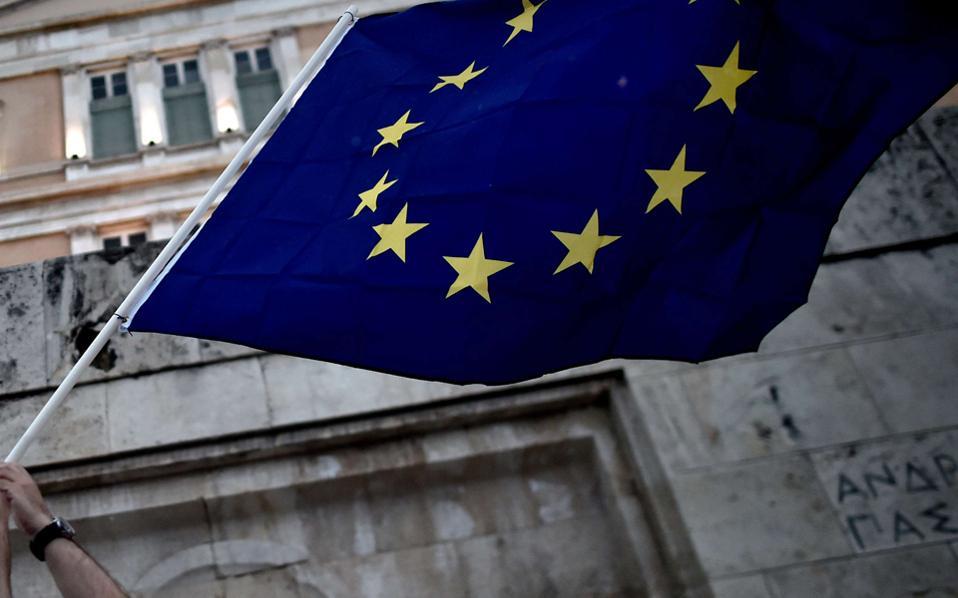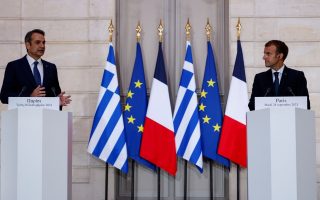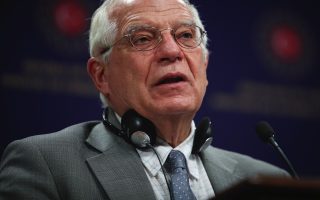Franco-Greek arms deal divides the EU
Some countries see move as a bilateral pact against Turkey, not a boost to European autonomy

The French-Greek deal signed in Paris on Tuesday by which Greece will buy three advanced frigates, with an option for a fourth, as well as an additional number of Rafale fighter planes, has once again exposed the cracks in European Union’s defense and foreign policy strategy.
Officially, there was little reaction. But countries (led by Germany) that place a premium on Turkey’s role in containing migration flows and prize their commercial interests in the country are more skeptical of an agreement that clearly targets Turkish President Recep Tayyip Erdogan’s ambitions in the Eastern Mediterranean.
German government officials told Kathimerini that there was no annoyance in Berlin with the deal. “We are aware of the traditionally close Franco-Greek relations, including in military issues,” they said. However, they added that “we hope we agree with Paris and Athens that it is also vital to cooperate closely and well with Turkey, our NATO partner.”
A report in Politico Europe’s Brussels Playbook, titled “Franco-Greek alliance ruffles feathers,” paints a somewhat different picture, saying that “several EU countries are not happy.” The report goes on to say that the Greek ambassador to the EU reassured his colleagues that “the deal was a pro-European pact that would boost EU defense autonomy.”
But at least some of them scoffed at this: “It is a bit bizarre to say the pact contributes to European sovereignty,” one EU diplomat was quoted as saying by Politico. “By all accounts, this is a traditional 19th-century defense pact between two European powers. It has definitely more to do with the pursuit of narrow national interests than with Europe.”
The article goes on to say that France now “fully backs” Greece’s territorial claims in the Eastern Mediterranean “even though those are internationally disputed.”
Actually, it is Turkey that makes territorial claims and, if the stance of the unnamed diplomats quoted in the article is representative, would signal a significant departure in the EU’s view of the Greek-Turkish disputes.
In Athens, Prime Minister Kyriakos Mitsotakis Thursday affirmed his intention to quickly implement the agreement with France and, at the same time, seek renewal of the Mutual Defense and Cooperation Agreement with the United States for five years.





